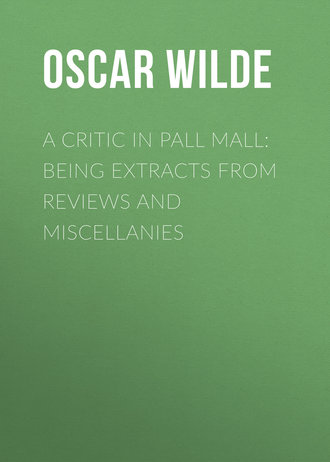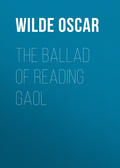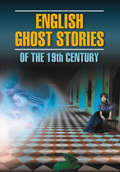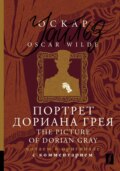
Оскар Уайльд
A Critic in Pall Mall: Being Extracts from Reviews and Miscellanies
There is a wide difference between the beautiful Tuscan city and the sea-city of the Adriatic. Florence is a city full of memories of the great figures of the past. The traveller cannot pass along her streets without treading in the very traces of Dante, without stepping on soil made memorable by footprints never to be effaced. The greatness of the surroundings, the palaces, churches, and frowning mediæval castles in the midst of the city, are all thrown into the background by the greatness, the individuality, the living power and vigour of the men who are their originators, and at the same time their inspiring soul. But when we turn to Venice the effect is very different. We do not think of the makers of that marvellous city, but rather of what they made. The idealized image of Venice herself meets us everywhere. The mother is not overshadowed by the too great glory of any of her sons. In her records the city is everything – the republic, the worshipped ideal of a community in which every man for the common glory seems to have been willing to sink his own. We know that Dante stood within the red walls of the arsenal, and saw the galleys making and mending, and the pitch flaming up to heaven; Petrarch came to visit the great Mistress of the Sea, taking refuge there, ‘in this city, true home of the human race,’ from trouble, war and pestilence outside; and Byron, with his facile enthusiasms and fervent eloquence, made his home for a time in one of the stately, decaying palaces; but with these exceptions no great poet has ever associated himself with the life of Venice. She had architects, sculptors and painters, but no singer of her own.
To realize the popularity of the great poets one should turn to the minor poets and see whom they follow, what master they select, whose music they echo.
Ordinary theology has long since converted its gold into lead, and words and phrases that once touched the heart of the world have become wearisome and meaningless through repetition. If Theology desires to move us, she must re-write her formulas.
It takes a great artist to be thoroughly modern. Nature is always a little behind the age.
Mr. Nash, who styles himself ‘a humble soldier in the army of Faith,’ expresses a hope that his book may ‘invigorate devotional feeling, especially among the young, to whom verse is perhaps more attractive than to their elders,’ but we should be sorry to think that people of any age could admire such a paraphrase as the following:
Foxes have holes in which to slink for rest,
The birds of air find shelter in the nest;
But He, the Son of Man and Lord of all,
Has no abiding place His own to call.
It is a curious fact that the worst work is always done with the best intentions, and that people are never so trivial as when they take themselves very seriously.
Mr. Foster is an American poet who has read Hawthorne, which is wise of him, and imitated Longfellow, which is not quite so commendable.
Andiatoroctè is the title of a volume of poems by the Rev. Clarence Walworth, of Albany, N.Y. It is a word borrowed from the Indians, and should, we think, be returned to them as soon as possible. The most curious poem of the book is called Scenes at the Holy Home:
Jesus and Joseph at work! Hurra!
Sight never to see again,
A prentice Deity plies the saw,
While the Master ploughs with the plane.
Poems of this kind were popular in the Middle Ages when the cathedrals of every Christian country served as its theatres. They are anachronisms now, and it is odd that they should come to us from the United States. In matters of this kind we should have some protection.
As for the triolets, and the rondels, and the careful study of metrical subtleties, these things are merely the signs of a desire for perfection in small things and of the recognition of poetry as an art. They have had certainly one good result – they have made our minor poets readable, and have not left us entirely at the mercy of geniuses.
Poetry has many modes of music; she does not blow through one pipe alone. Directness of utterance is good, but so is the subtle recasting of thought into a new and delightful form. Simplicity is good, but complexity, mystery, strangeness, symbolism, obscurity even, these have their value. Indeed, properly speaking, there is no such thing as Style; there are merely styles, that is all.
Writers of poetical prose are rarely good poets.
Poetry may be said to need far more self-restraint than prose. Its conditions are more exquisite. It produces its effects by more subtle means. It must not be allowed to degenerate into mere rhetoric or mere eloquence. It is, in one sense, the most self-conscious of all the arts, as it is never a means to an end but always an end in itself.
It may be difficult for a poet to find English synonyms for Asiatic expressions, but even if it were impossible it is none the less a poet’s duty to find them. As it is, Sir Edwin Arnold has translated Sa’di and some one must translate Sir Edwin Arnold.
Lounging in the open air is not a bad school for poets, but it largely depends on the lounger.
People are so fond of giving away what they do not want themselves, that charity is largely on the increase. But with this kind of charity I have not much sympathy. If one gives away a book, it should be a charming book – so charming, that one regrets having given it.
Mr. Whistler, for some reason or other, always adopted the phraseology of the minor prophets. Possibly it was in order to emphasize his well-known claims to verbal inspiration, or perhaps he thought with Voltaire that Habakkuk était capable de tout, and wished to shelter himself under the shield of a definitely irresponsible writer none of whose prophecies, according to the French philosopher, has ever been fulfilled. The idea was clever enough at the beginning, but ultimately the manner became monotonous. The spirit of the Hebrews is excellent but their mode of writing is not to be imitated, and no amount of American jokes will give it that modernity which is essential to a good literary style. Admirable as are Mr. Whistler’s fireworks on canvas, his fireworks in prose are abrupt, violent and exaggerated.
‘The decisive events of the world,’ as has been well said, ‘take place in the intellect,’ and as for Board-schools, academic ceremonies, hospital wards and the like, they may be well left to the artists of the illustrated papers, who do them admirably and quite as well as they need be done. Indeed, the pictures of contemporary events, Royal marriages, naval reviews and things of this kind that appear in the Academy every year, are always extremely bad; while the very same subjects treated in black and white in the Graphic or the London News are excellent. Besides, if we want to understand the history of a nation through the medium of art, it is to the imaginative and ideal arts that we have to go and not to the arts that are definitely imitative. The visible aspect of life no longer contains for us the secret of life’s spirit.
The difficulty under which the novelists of our day labour seems to me to be this: if they do not go into society, their books are unreadable; and if they do go into society, they have no time left for writing.
I must confess that most modern mysticism seems to me to be simply a method of imparting useless knowledge in a form that no one can understand. Allegory, parable, and vision have their high artistic uses, but their philosophical and scientific uses are very small.
The object of most modern fiction is not to give pleasure to the artistic instinct, but rather to portray life vividly for us, to draw attention to social anomalies, and social forms of injustice. Many of our novelists are really pamphleteers, reformers masquerading as story-tellers, earnest sociologists seeking to mend as well as to mirror life.
The book is certainly characteristic of an age so practical and so literary as ours, an age in which all social reforms have been preceded and have been largely influenced by fiction.
Mr. Stopford Brooke said some time ago that Socialism and the socialistic spirit would give our poets nobler and loftier themes for song, would widen their sympathies and enlarge the horizon of their vision, and would touch, with the fire and fervour of a new faith, lips that had else been silent, hearts that but for this fresh gospel had been cold. What Art gains from contemporary events is always a fascinating problem and a problem that is not easy to solve. It is, however, certain that Socialism starts well equipped. She has her poets and her painters, her art lecturers and her cunning designers, her powerful orators and her clever writers. If she fails it will not be for lack of expression. If she succeeds her triumph will not be a triumph of mere brute force.
Socialism is not going to allow herself to be trammelled by any hard and fast creed or to be stereotyped into an iron formula. She welcomes many and multiform natures. She rejects none and has room for all. She has the attraction of a wonderful personality and touches the heart of one and the brain of another, and draws this man by his hatred and injustice, and his neighbour by his faith in the future, and a third, it may be, by his love of art or by his wild worship of a lost and buried past. And all of this is well. For, to make men Socialists is nothing, but to make Socialism human is a great thing.
The Reformation gained much from the use of popular hymn-tunes, and the Socialists seem determined to gain by similar means a similar hold upon the people. However, they must not be too sanguine about the result. The walls of Thebes rose up to the sound of music, and Thebes was a very dull city indeed.
We really must protest against Mr. Matthews’ efforts to confuse the poetry of Piccadilly with the poetry of Parnassus. To tell us, for instance, that Mr. Austin Dobson’s verse ‘has not the condensed clearness nor the incisive vigor of Mr. Locker’s’ is really too bad even for Transatlantic criticism. Nobody who lays claim to the slightest knowledge of literature and the forms of literature should ever bring the two names into conjunction.
Mr. Dobson has produced work that is absolutely classical in its exquisite beauty of form. Nothing more artistically perfect in its way than the Lines to a Greek Girl has been written in our time. This little poem will be remembered in literature as long as Thyrsis is remembered, and Thyrsis will never be forgotten. Both have that note of distinction that is so rare in these days of violence, exaggeration and rhetoric. Of course, to suggest, as Mr. Matthews does, that Mr. Dobson’s poems belong to ‘the literature of power’ is ridiculous. Power is not their aim, nor is it their effect. They have other qualities, and in their own delicately limited sphere they have no contemporary rivals; they have none even second to them.
The heroine is a sort of well-worn Becky Sharp, only much more beautiful than Becky, or at least than Thackeray’s portraits of her, which, however, have always seemed to me rather ill-natured. I feel sure that Mrs. Rawdon Crawley was extremely pretty, and I have never understood how it was that Thackeray could caricature with his pencil so fascinating a creation of his pen.
A critic recently remarked of Adam Lindsay Gordon that through him Australia had found her first fine utterance in song. This, however, is an amiable error. There is very little of Australia in Gordon’s poetry. His heart and mind and fancy were always preoccupied with memories and dreams of England and such culture as England gave him. He owed nothing to the land of his adoption. Had he stayed at home he would have done much better work.
That Australia, however, will some day make amends by producing a poet of her own we cannot doubt, and for him there will be new notes to sound and new wonders to tell of.
The best that we can say of him is that he wrote imperfectly in Australia those poems that in England he might have made perfect.
Judges, like the criminal classes, have their lighter moments.
There seems to be some curious connection between piety and poor rhymes.
The South African poets, as a class, are rather behind the age. They seem to think that ‘Aurora’ is a very novel and delightful epithet for the dawn. On the whole they depress us.
The only original thing in the volume is the description of Mr. Robert Buchanan’s ‘grandeur of mind.’ This is decidedly new.
Dr. Cockle tells us that Müllner’s Guilt and The Ancestress of Grillparzer are the masterpieces of German fate-tragedy. His translation of the first of these two masterpieces does not make us long for any further acquaintance with the school. Here is a specimen from the fourth act of the fate-tragedy.
SCENE VIII
Elvira. Hugo
Elvira (after long silence, leaving the harp, steps to Hugo, and seeks his gaze).
Hugo (softly). Though I made sacrifice of thy sweet life, the Father has forgiven. Can the wife – forgive?
Elvira (on his breast). She can!
Hugo (with all the warmth of love). Dear wife!
Elvira (after a pause, in deep sorrow). Must it be so, beloved one?
Hugo (sorry to have betrayed himself). What?
The Renaissance had for its object the development of great personalities. The perfect freedom of the temperament in matters of art, the perfect freedom of the intellect in intellectual matters, the full development of the individual, were the things it aimed at. As we study its history we find it full of great anarchies. It solved no political or social problems; it did not seek to solve them. The ideal of the ‘Grand Siècle,’ and of Richelieu, in whom the forces of that great age were incarnate, was different. The ideas of citizenship, of the building up of a great nation, of the centralization of forces, of collective action, of ethnic unity of purpose, came before the world.
The creation of a formal tradition upon classical lines is never without its danger, and it is sad to find the provincial towns of France, once so varied and individual in artistic expression, writing to Paris for designs and advice. And yet, through Colbert’s great centralizing scheme of State supervision and State aid, France was the one country in Europe, and has remained the one country in Europe, where the arts are not divorced from industry.
Hawthorne re-created for us the America of the past with the incomparable grace of a very perfect artist, but Mr. Bret Harte’s emphasized modernity has, in its own sphere, won equal, or almost equal, triumphs.
It is pleasant to come across a heroine [Bret Harte’s Cressy] who is not identified with any great cause, and represents no important principle, but is simply a wonderful nymph from American backwoods, who has in her something of Artemis, and not a little of Aphrodite.
It is always a pleasure to come across an American poet who is not national, and who tries to give expression to the literature that he loves rather than to the land in which he lives. The Muses care so little for geography!
Blue-books are generally dull reading, but Blue-books on Ireland have always been interesting. They form the record of one of the great tragedies of modern Europe. In them England has written down her indictment against herself and has given to the world the history of her shame. If in the last century she tried to govern Ireland with an insolence that was intensified by race hatred and religious prejudice, she has sought to rule her in this century with a stupidity that is aggravated by good intentions.
Like most penmen he [Froude] overrates the power of the sword. Where England has had to struggle she has been wise. Where physical strength has been on her side, as in Ireland, she has been made unwieldy by that strength. Her own strong hands have blinded her. She has had force but no direction.
There are some who will welcome with delight the idea of solving the Irish question by doing away with the Irish people. There are others who will remember that Ireland has extended her boundaries, and that we have now to reckon with her not merely in the Old World but in the New.
Plastic simplicity of outline may render for us the visible aspect of life; it is different when we come to deal with those secrets which self-consciousness alone contains, and which self-consciousness itself can but half reveal. Action takes place in the sunlight, but the soul works in the dark. There is something curiously interesting in the marked tendency of modern poetry to become obscure. Many critics, writing with their eyes fixed on the masterpieces of past literature, have ascribed this tendency to wilfulness and to affectation. Its origin is rather to be found in the complexity of the new problems, and in the fact that self-consciousness is not yet adequate to explain the contents of the Ego. In Mr. Browning’s poems, as in life itself, which has suggested, or rather necessitated, the new method, thought seems to proceed not on logical lines, but on lines of passion. The unity of the individual is being expressed through its inconsistencies and its contradictions. In a strange twilight man is seeking for himself, and when he has found his own image, he cannot understand it. Objective forms of art, such as sculpture and the drama, sufficed one for the perfect presentation of life; they can no longer so suffice.
As he is not a genius he, naturally, behaves admirably on every occasion.
Certainly dialect is dramatic. It is a vivid method of re-creating a past that never existed. It is something between ‘A Return to Nature’ and ‘A Return to the Glossary.’ It is so artificial that it is really naïve. From the point of view of mere music, much may be said for it. Wonderful diminutives lend new notes of tenderness to the song. There are possibilities of fresh rhymes, and in search for a fresh rhyme poets may be excused if they wander from the broad highroad of classical utterance into devious byways and less-trodden paths. Sometimes one is tempted to look on dialect as expressing simply the pathos of provincialisms, but there is more in it than mere mispronunciation. With that revival of an antique form, often comes the revival of an antique spirit. Through limitations that are sometimes uncouth, and always narrow, comes Tragedy herself; and though she may stammer in her utterance, and deck herself in cast-off weeds and trammelling raiment, still we must hold ourselves in readiness to accept her, so rare are her visits to us now, so rare her presence in an age that demands a happy ending from every play, and that sees in the theatre merely a source of amusement.
There is a great deal to be said in favour of reading a novel backwards. The last page is, as a rule, the most interesting, and when one begins with the catastrophe or the dénoûment one feels on pleasant terms of equality with the author. It is like going behind the scenes of a theatre. One is no longer taken in, and the hairbreadth escapes of the hero and the wild agonies of the heroine leave one absolutely unmoved.
He has every form of sincerity except the sincerity of the artist, a defect that he shares with most of our popular writers.
On the whole Primavera is a pleasant little book, and we are glad to welcome it. It is charmingly ‘got up,’ and undergraduates might read it with advantage during lecture hours.





